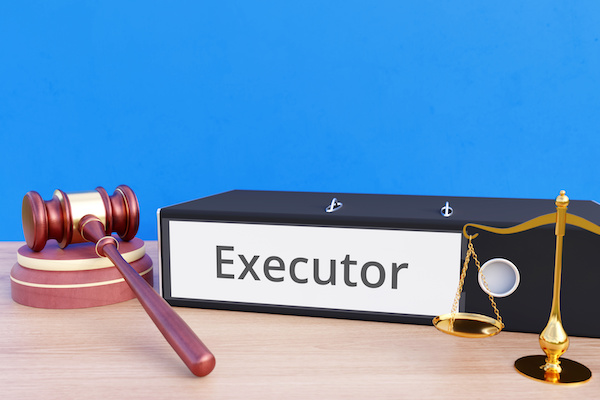Should You Agree to Serve As An Executor?

This column follows up on two prior columns on related subjects. They are “What Does An Executor Do?” published November 16, 2021 and “Reasons To Hire A Lawyer For Probate” published February 8, 2022. Both of them, directly or indirectly raise the question: Should you agree to serve as an Executor in the first place?
Only you know your capacity and willingness to serve or the degree of need expressed by the person asking you but it should help to know first that, if you do decide to accept, there can be help out there and second there are standard procedures and practices you can follow. I have had several clients who have served as Executor or Executrix, most often for family members. Some of them have expressed frustration followed by relief when the process is over but are pleased at their completion of the project. Others note how easy the process was. Frequently the second case relates to resolution of an estate where a surviving spouse (the Executor’s mother or father) is the only or at least the primary beneficiary. This can be very different from some other more complicated estates involving other relatives or friends or charities. The size of the estate does not necessarily relate to the complexity. Some relatively small estates can be fairly complicated, especially if there are unpaid bills, and some large estates can be relatively easy. So what are things to know?
While the person is living you should learn as much as you can about the scope of the engagement. You should, of course, obtain a copy of the Will and know who the beneficiaries will be, their relationship to the person who asked you (known in law as the “Testator”), any likely conflicts that could arise, and, if possible, background on finances. You should know where to find the original Will at all times. You should discover personal preferences – whether your friend or relative wants a church service and traditional funeral or something else, the place of burial, whether a prepaid burial has been purchased in advance, whether there should be a social or celebration of life after the funeral. Any special wishes your friend or family member wants you to follow should also be elicited while you still can determine in advance.
You should recognize that the scope of the engagement can be limited. An Executor is not a Trustee (unless you are to be appointed as both) and your engagement would last from the time of passing of the Testator to your Final Status Report with the Register of Wills office. Briefly, the Executor is responsible for locating and preparing an inventory of the assets, paying the final bills, including funeral and related bills, locating and notifying the beneficiaries, preparing the tax returns, including Inheritance Tax return (in Pennsylvania) or estate tax return in some other states, distributing the assets and submitting a final accounting which, in Pennsylvania, might simply be a Family Settlement Agreement. Although this may sound daunting, once these tasks are completed your job typically is done. If you are a Trustee, once the assets to be held in Trust are distributed to you, if the Trust continues following the death of the Testator, your job will have just begun.
You can get professional assistance. I previously wrote on the advantages of hiring an attorney for the estate. There are many advantages including running interference with beneficiaries and advising on deductions, exemptions and whether and when you can take a fee for your work. Other professionals can help as well. If your friend or family member has had an accountant, the accountant can help by preparing the final income tax return and often can provide much needed information. The attorney often prepares the Inheritance Tax Return although the accountant might do so also. There may be an income tax return for the estate known as a 1041 (federal) and, for state purposes in Pennsylvania a PA 41. Attorney’s fees and Accountant’s fees are deductible on the Inheritance Tax Return as administrative expenses and can lower the amount of the tax. Executor’s fees are also deductible but you may or may not decide to take it since it also can be income for your federal income taxes.
There are many issues to consider but, if you accept, it can be a satisfying result.
About the Author Janet Colliton
Esquire, Colliton Law Associates, P.C. Janet Colliton has practiced law for over 38 years, 37 of them in Chester County, Pennsylvania, a suburb of Philadelphia. Her practice, Colliton Law Associates, PC, is limited to elder law, Medicaid, including advice, applications and appeals, and other benefits planning including Veterans benefits, life care and special needs planning, guardianships, retirement, and estate planning and administration.
